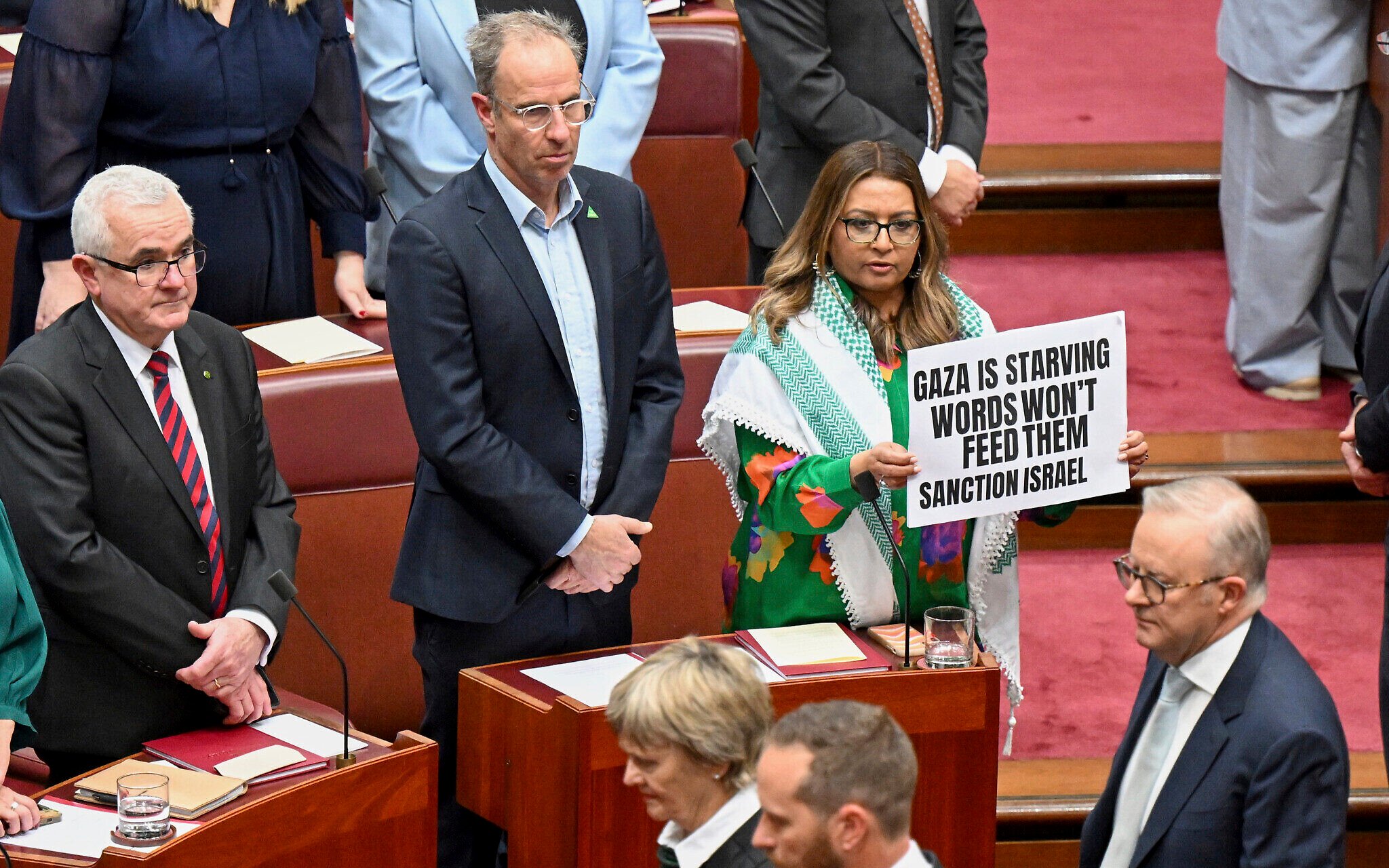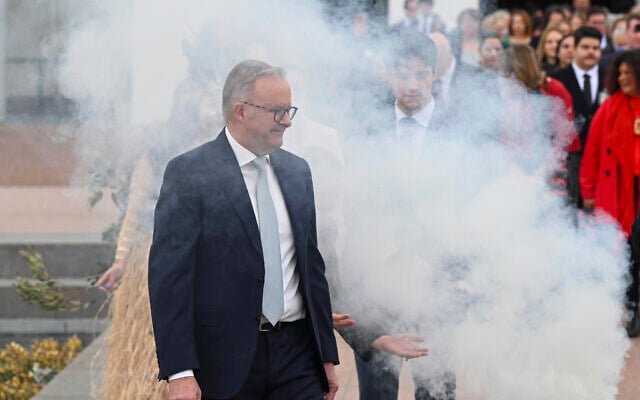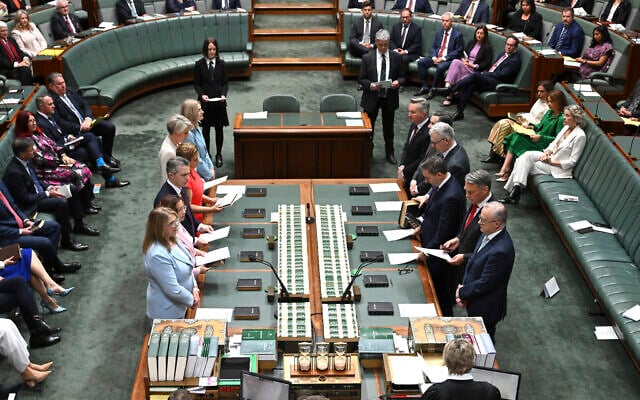



MELBOURNE, Australia — Australia’s parliament resumed Tuesday for the first time since the center-left Labor Party won one of the nation’s largest-ever majorities in the May elections. The day was largely ceremonial, with reminders of conflict in the Middle East.
Hundreds of pro-Palestinian, anti-Israel demonstrators gathered outside Parliament House on Tuesday, calling for the government to impose sanctions on Israel after Australia joined another 27 countries in issuing a joint statement, saying the war in Gaza “must end now.”
Israel rejected the call, with the Foreign Ministry writing in a statement that it “is disconnected from reality and sends the wrong message to Hamas.” It also asserted that “all statements and all claims should be directed at the only party responsible for the lack of a deal for the release of hostages and a ceasefire: Hamas, which started this war and is prolonging it.”
Security guards prevented 15 demonstrators from entering the public gallery of the Senate while Governor-General Sam Mostyn, who represents Australia’s head of state King Charles III, was giving a speech to lawmakers on Tuesday afternoon, Australian Broadcasting Corp. reported.
But Sen. Mehreen Faruqi, deputy leader of the minor party Australian Greens, made a silent protest by holding up a sign in the chamber during Mostyn’s speech that said: “Gaza is starving, words won’t feed them, sanction Israel.”
Australia has imposed financial and travel sanctions on individual Israelis, including far-right ministers Itamar Ben Gvir and Bezalel Smotrich. But the Australian government has not imposed wider sanctions on the state.
The war in Gaza started on October 7, 2023, when some 5,000 Hamas-led terrorists invaded southern Israel, killing some 1,200 people and taking 251 hostages, amid acts of brutality and sexual assault.
Some 20 living hostages remain in terror groups’ captivity in Gaza, alongside the bodies of 28 who are confirmed dead, and two about whom there are grave concerns. One of the slain hostages is an Israeli soldier who was killed in 2014. The rest are civilians and soldiers abducted during the October 7 invasion.
The Hamas-run Gaza health ministry says more than 58,000 people in the Strip have been killed or are presumed dead in the fighting so far, though the toll cannot be verified and does not differentiate between civilians and fighters. Israel says it has killed some 20,000 combatants in battle as of January and another 1,600 terrorists inside Israel during the October 7 onslaught.
Australian Home Affairs Minister Tony Burke described the joint statement as the strongest words his government had used on the conflict in Gaza.
“When you can make a statement together with so many other significant powers, then we’re all hoping that there’ll be something that will break this,” Burke told ABC.
“What we are watching on the other side of the world is indefensible. The hostages still need to be released, but the war needs to end,” Burke added.
But senior opposition lawmaker Jonathon Duniam described Australia joining 27 other nations in signing the statement as “alarming.”
“There is more to this issue than this letter betrays, and I think it is a sad turn of events for our government to have joined with other countries in signing this letter,” Duniam said.
Australia’s 48th Parliament was opened with Indigenous ceremonies in Parliament House on a day that was otherwise steeped in centuries of British Westminster political tradition.
Prime Minister Anthony Albanese thanked the traditional owners of the national capital, Canberra, at a Welcome to Country ceremony. He noted that such ceremonies performed by Indigenous people to welcome visitors to their traditional land at the start of a new parliament had been introduced by a Labor government in 2007.
“In the 48th Parliament, we write the next chapter. Let us do it with the same sense of grace and courage that First Nations people show us with their leadership,” Albanese said.
Labor won 94 seats in the 150-seat House of Representatives, where governments are formed. Labor’s majority is the largest since then-prime minister John Howard’s conservative coalition won 94 seats in 1996, when the lower chamber had only 148 seats.
Howard stayed in power for almost 12 years, and Albanese is the first prime minister since then to lead a party to consecutive election victories, following an extraordinary era of political instability.
The main opposition Liberal Party has elected its first woman leader, Sussan Ley, after one of the party’s worst election results on record.
Her conservative coalition holds 43 seats in the House, while independent lawmakers and minor parties that are not aligned with either the government or opposition hold 13.
No party holds a majority in the 76-seat Senate. Labor holds 29 seats and the conservatives 27 seats. The Australian Greens hold 10 seats, making the next largest bloc.
The government will likely prefer to negotiate with the conservatives or Greens to get legislation through the Senate, rather than deal with multiple minor parties and independents.


